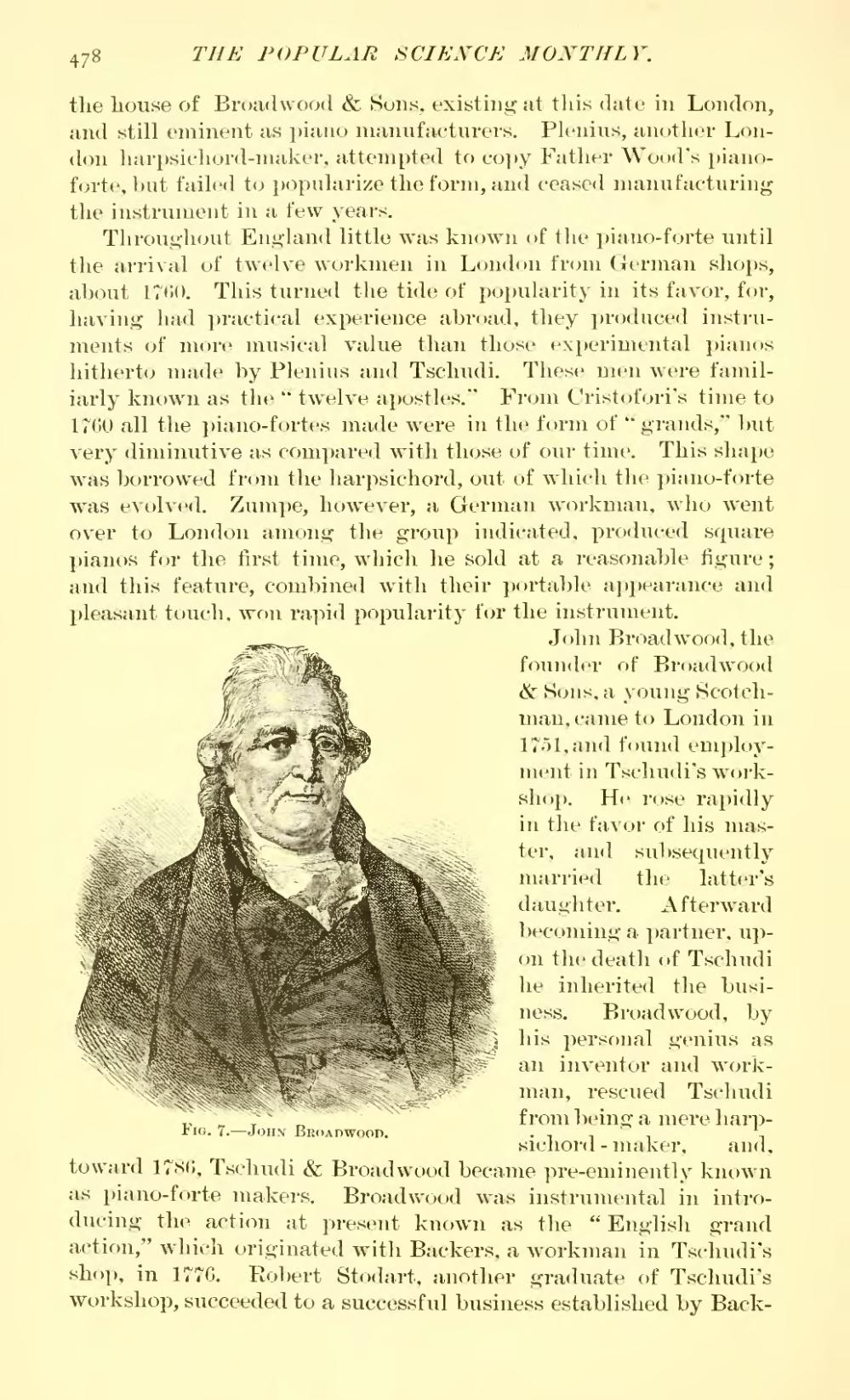the house of Broadwood & Sons, existing at this date in London, and still eminent as piano manufacturers. Plenius, another London harpsichord-maker, attempted to copy Father Wood's pianoforte, but failed to popularize the form, and ceased manufacturing the instrument in a few years.
Throughout England little was known of the piano-forte until the arrival of twelve workmen in London from German shops, about 1760. This turned the tide of popularity in its favor, for, having had practical experience abroad, they produced instruments of more musical value than those experimental pianos hitherto made by Plenius and Tschudi, These men were familiarly known as the "twelve apostles." From Cristofori's time to 1760 all the piano-fortes made were in the form of "grands," but very diminutive as compared with those of our time. This shape was borrowed from the harpsichord, out of which the piano-forte was evolved. Zumpe, however, a German workman, who went over to London among the group indicated, produced square pianos for the first time, which he sold at a reasonable figure; and this feature, combined with their portable appearance and pleasant touch, won rapid popularity for the instrument.
 Fig. 7.—John Broadwood.
John Broadwood, the founder of Broadwood & Sons, a young Scotchman, came to London in 1751, and found employment in Tschudi's workshop. He rose rapidly in the favor of his master, and subsequently married the latter's daughter. Afterward becoming a partner, upon the death of Tschudi he inherited the business. Broadwood, by his personal genius as an inventor and workman, rescued Tschudi from being a mere harpsichord-maker, and, toward 1786, Tschudi & Broadwood became pre-eminently known as piano-forte makers. Broadwood was instrumental in introducing the action at present known as the "English grand action," which originated with Backers, a workman in Tschudi's shop, in 1776. Robert Stodart, another graduate of Tschudi's workshop, succeeded to a successful business established by Back-
Fig. 7.—John Broadwood.
John Broadwood, the founder of Broadwood & Sons, a young Scotchman, came to London in 1751, and found employment in Tschudi's workshop. He rose rapidly in the favor of his master, and subsequently married the latter's daughter. Afterward becoming a partner, upon the death of Tschudi he inherited the business. Broadwood, by his personal genius as an inventor and workman, rescued Tschudi from being a mere harpsichord-maker, and, toward 1786, Tschudi & Broadwood became pre-eminently known as piano-forte makers. Broadwood was instrumental in introducing the action at present known as the "English grand action," which originated with Backers, a workman in Tschudi's shop, in 1776. Robert Stodart, another graduate of Tschudi's workshop, succeeded to a successful business established by Back-

